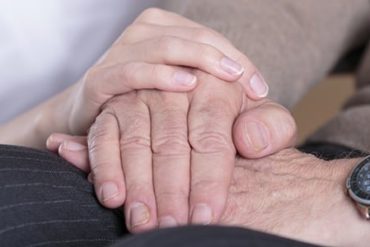There ought to be minimal if not zero fat in a healthy liver. For the majority of people a little fat in the liver is not likely to cause difficulties. Fatty liver is the term applied to the condition where you have a great deal of fat in the liver, caused by too many triglycerides, the main fats in the body. They belong to a group of substances known as lipids which are necessary for your body’s energy as well as cell growth.
Triglycerides are obtained from our diets and they are made in our livers. The liver transforms them and manages their release. The liver mixes them with specific proteins to make minute spheres known as lipoproteins which are transported into the bloodstream for circulation into the body’s cells.
When this flow is broken and the proportion of triglycerides in the liver increase, their release from the liver is slowed down, causing a build-up of fat in the liver cells. Up until recently fatty liver was deemed to be a rare disease and quite harmless. It was not considered to progress to long term or serious liver disease.
Non Alcoholic Fatty Liver Disease
Fatty liver disease includes numerous conditions. Nonalcoholic fatty liver is the cause of chronic liver injury in about 20% of cases in UK.
The two stages relating to fatty liver disease are diagnosed by a biopsy as well as checking a liver sample:
- Fatty liver – This checks for fat deposits in liver cells. This is a purely benign condition which does not have the probability of leading to liver failure, liver cancer or cirrhosis.
- NASH – The fatty liver has advanced to inflammation as well as scarring of the liver. This has the potential to cause liver failure, liver cancer and cirrhosis.
Foods Linked to Fatty Liver
It is considered that fatty liver can be treated by changes to the diet.
High Glycaemic Foods
High glycaemic foods increase blood sugar quickly, thus, they are linked to adding to fatty liver. High-glycaemic foods include:
- White bread
- The majority of ready to eat breakfast cereals
- White rice
- Concentrated sugar
In a recent study, mice that were placed on a high glycaemic diet were shown to have twice as much fat in their bodies, livers and blood as mice fed on the same number of calories, protein and fat; however, they were on a low glycaemic diet.
Low Glycaemic Foods
Low glycaemic foods release blood sugar slowly and include:
- Fruits
- Vegetables
- Beans
- Wholegrains
The usual treatment presently recommended for those with fatty liver is a low fat diet. However, some specialists in this area highlight the number of children with fatty liver do not respond to a low fat diet as it is misconception to consider the fat eaten entering the liver.
Diet for Fatty Liver
The diet considered most effective for fatty liver ought to be:
- High fibre
- Low calorie
- Low in saturated fat
- With total fat amounting to no more than 30% of overall calories.
Try not to be too anxious to lose weight quickly as rapid weight loss can lead the disease getting worse. Alternatively, go slow and attempt to lose 10% of your body weight in six months so your liver is cleansed.
Other Health Conditions
Managing Diabetes
Diabetes management through diet, medication or insulin lowers blood sugar. Therefore, it can lower the amount of accumulated fat in your liver and prevent further liver damage.
Managing Cholesterol
You can control high levels of cholesterol as well as triglycerides via diet, medication and exercise. Ensuring your cholesterol is in check can also assist in stabilising or reversing fatty liver disease.
Alcohol and Medicines that Cause Liver Damage
Should you have fatty liver, especially the nonalcoholic one, ensure you do not drink alcohol. Please check with your GP and read all medicine labels so to which medicines to avoid which have contributed to liver damage. Ensure that you clarify with your GP which over the counter drugs to also avoid.
Where Do you Start?
Should you have fatty liver and your BMI be over 25, a healthy dietary plan and regular exercise can possibly:
- Lessen inflammation
- Decrease elevated levels of liver enzymes
- Reduce insulin resistance
- Lessen the amount of accumulated fat carried in your liver
Talk to your GP regarding your diet and ensure you exercise on a daily basis.




